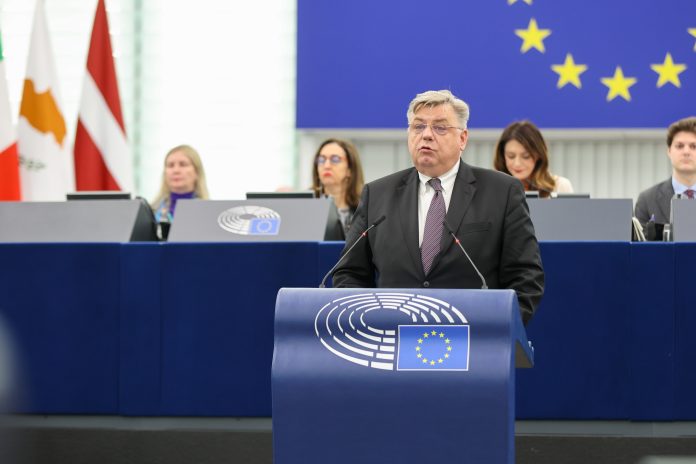For the ECR Group, the adopted text on artificial intelligence (AI) is a good starting point for further negotiations. The ECR Group wants AI systems to be trustworthy and human-centred. Their development, training and marketing should be transparent and based on a sound assessment of risks to safety, health, and human rights.
Following today’s vote in the European Parliament’s Internal Market and the Civil Liberties Committees, ECR IMCO Shadow Rapporteur Kosma Złotowski is particularly pleased that ECR proposals, such as regulatory sandboxes, safe and closed spaces for testing European AI-based innovations, and measures helping SMEs use the technology, made it into the compromise text.
“We ensured that AI-based products and services entering the European market will be safe for users. Public authorities using advanced algorithms must take the utmost care to ensure that decisions made using AI can be understood by the public and that the process is transparent”, Złotowski said.
ECR Shadow Rapporteur in the Civil Liberties Committee Rob Rooken said: “The developments in the AI world are going very fast and will have a lot of impact on our lives. We are probably underestimating how big of an impact that will be. With the adopted AI Act today, the European Parliament has made an effort to protect the fundamental rights of EU citizens.”
During the negotiations, Złotowski emphasised the enormous potential of artificial intelligence. “Artificial intelligence can help in many areas of life and in many sectors of the economy. It is worth investing in and improving this technology in the EU. If we are realistic about a shorter working week, we need to increase our productivity, and this is possible through the use of AI-based tools,” he said.
“In recent months, we have heard many extreme views on the implications of the widespread use of artificial intelligence and calls for distrust of this technology. I hope that this legislation will address these concerns, although it is clear that it will need to be reviewed and updated as it develops,” Złotowski concluded.
The draft negotiating mandate needs to be endorsed by the whole Parliament, with the vote expected during the 12-15 June session.

